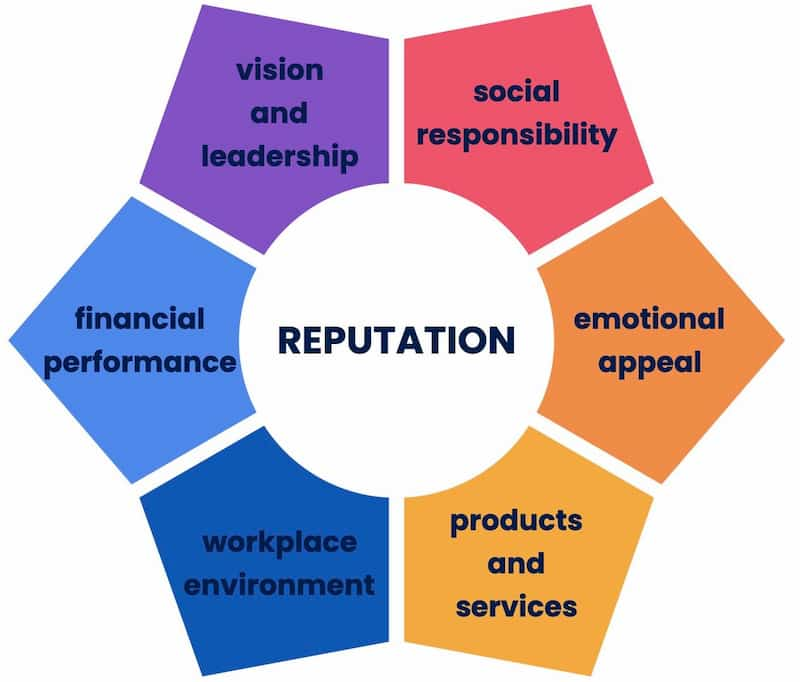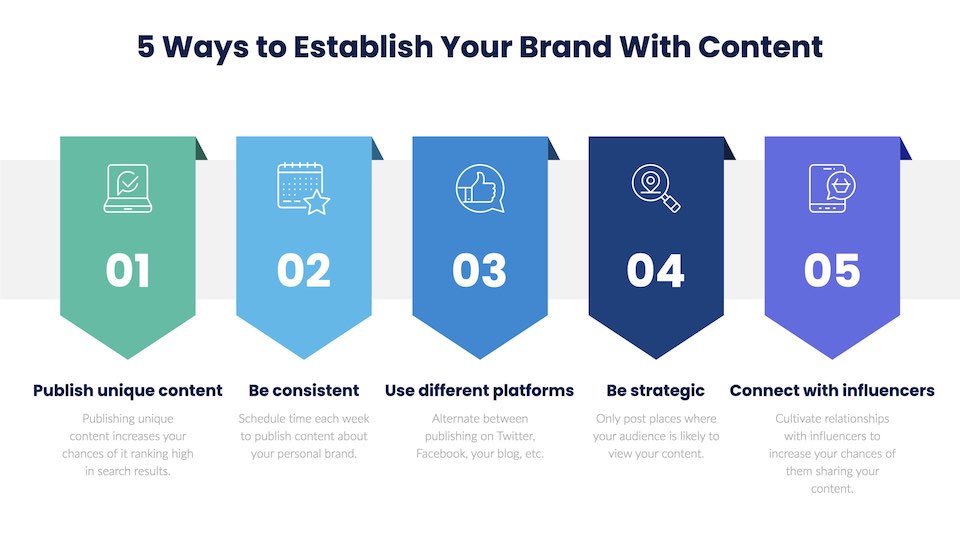The Difference Between Proactive and Reactive Reputation Management

The best reputation management strategies are proactive. In other words, if you aren’t actively managing your brand’s reputation, you are already behind.
Reputation problems can quickly turn your brand’s story into one of horror. Even the best brands are just one rogue tweet or scathing review away from crisis. Creating a proactive reputation management strategy before a crisis arises can save you precious time, reduce stress, and rescue your brand before its reputation is destroyed.
- Proactive reputation management involves taking preventative measures to build a positive brand image and address potential risks before crises occur. It focuses on long-term reputation-building through content, social media, monitoring, etc.
- Reactive reputation management involves crisis response and damage control after adverse events or incidents. It aims to minimize the impact on brand reputation and maintain customer trust through prompt action.
- Proactive reputation management is focused on shaping the brand narrative and anticipating risks, while reactive management deals with mitigating current reputational damage.
Businesses need a balance of proactive strategies to establish credibility and trust, as well as reactive plans to effectively handle unforeseen reputational threats.
While reputation management strategies are becoming increasingly popular, it is still not a high priority for many companies. The truth is that working on your company’s reputation early will place you in a much better position to handle a crisis if and when it happens. Investing early to establish and maintain a positive reputation pays for itself in the long term.

This blog will first outline the difference between proactive and reactive reputation management. Then, we’ll share some tips and tricks to manage your reputation proactively, no matter where your brand is in development. We’ll wrap it all up with the benefits of proactive reputation management.
Sections
- Reputation Management Fast Facts
- Proactive vs. Reactive Reputation Management
- How to do Proactive Reputation Management
- Benefits of Proactive Reputation Management
Reputation Management Fast Facts
- 58% of executives believe online reputation management should be addressed, but only 15% do anything about it.
- More than 25% of a company’s market value is directly attributable to its reputation.
- 41% of companies that experienced a negative reputation event reported a loss of brand value and revenue.
- 86% of people would pay more for services from a company with higher ratings and reviews.
Proactive vs. Reactive Reputation Management
“It takes 20 years to build a reputation and five minutes to ruin it. If you think about that, you’ll do things differently.” – Warren Buffet
Actively managing your online reputation through both proactive and reactive strategies is crucial.
But what exactly is the difference between proactive and reactive reputation management?
Proactive reputation management involves preemptive steps to build and safeguard your brand’s reputation before any issues emerge. It focuses on long-term reputation building by promoting a positive brand narrative across channels.
Proactive reputation management happens when you start managing your brand’s reputation early – well before any reputational risks arise. It is significantly cheaper, easier, and a generally more pleasant experience to build an excellent online reputation instead of scrambling to fix a broken one.
We define reputation management as influencing what and how people think of a brand or person. There are plenty of strategies you can employ to maintain a positive online reputation.
Proactive reputation management is about establishing your brand’s story on your own terms before anyone else can define it for you. Some key proactive strategies include:
- Content Creation: Produce owned media content like blog posts and infographics that portray your brand positively. This content populates search results pages and informs what people see when they look you up online.
- Social Media Engagement: Maintaining an active social media presence allows you to directly interface with your audience and establish your brand’s voice. Platforms like Facebook and Twitter are powerful reputation management tools.
- Influencer Partnerships: Collaborating with industry influencers, brand advocates and loyal customers as ambassadors helps amplify positive messaging about your brand.
- Online Monitoring & SEO: Tracking brand mentions, conducting keyword research, claiming listings, and optimizing content builds visibility and helps shape how your brand appears in search engine results.
- Crisis Planning: A crisis communication plan allows you to respond quickly and effectively if an issue arises. Being prepared is critical.
The goal of proactive management is to build an authoritative and consistent brand image. By actively monitoring your reputation and creating positive content, you can establish credibility and trust with audiences.
Here are a few more proactive reputation management techniques:
- Review management
- Improving customer service
- Wikipedia page development
- Sentiment analysis
On the other side of the spectrum, there is reactive reputation management.
Reactive reputation management is essentially crisis management. It involves responding to a reputational risk that has already occurred. While crisis management is sometimes unavoidable, a strong reputation will help your brand weather the storm.
By starting early and establishing a positive online reputation, you have a vast supply of positive information you can manipulate and use to your advantage. This is a powerful tool to have. If you don’t lay your reputational groundwork and instead wait until something bad happens, it can take months to establish and then repair your brand’s reputation.
Take Apple, for example. Apple is a company that has suffered repeated reputational blows over the past several years. From admitting to slowing down old iPhones to quality control failures, Apple has faced problems that could have put a smaller company out of business. But people are still buying iPhones. Why? Because Apple has developed such strong brand loyalty their customers have become brand ambassadors and evangelists.
How to do Proactive Reputation Management
Whether you’re running a Fortune 500 company or have just launched a startup, the best time to start working on your corporate reputation is now. The following tips work best for a brand with a positive or neutral reputation. If you are dealing with a crisis situation, check out this page for info on reputation repair.
Step 1: Google your company
Most people will base their opinion of your company on what they see in search engine results, so it’s best to start there. Google your company name. Google the keywords or phrases someone might use to find a company like yours. Take stock of everything that already exists about your company.
Consistently monitoring your search engine results not only gives you insights into what people are saying about your company online, but it also means that you will be the first to know when negative content starts to rank so that you can take swift action to remove it.
Step 2: Track brand mentions
While Googling your company name is an important first step for reputation management, there are plenty of analytical tools that offer a less cavalier approach to monitoring and tracking your brand mentions. Here are a few of our favorites:
- SEMRush
- Google Alerts
- Mention
- Review Push
- Buzzsumo
- ReviewTrackers
- Birdeye
Step 3: Manage online reviews
Every additional one-star Yelp rating causes an increase in business revenue as high as 9%.
Gaining control of your online reviews early will strengthen your business reputation and minimize the effects of damaging negative reviews. Everyone is reading online reviews, and research by Moz suggests if a customer sees a negative review of a business on the search engine results page, that business can lose 21.9% of its customers!
Managing online reviews can seem like a monumental task, but there are a few simple things you can do now to encourage positive reviews and work through any negative ones.
- Create a stellar experience. This really is key. If your business provides amazing products and/or services, people will be more inclined to leave positive reviews.
- Ask for reviews. While we don’t condone paying for reviews, simply asking consumers to leave a review is a great way to bulk up your review pages. In fact, 66% of consumers will leave a review if you ask them to.
- Respond to reviews. Yes, this includes the bad ones! Customers will take the business’s response into consideration when researching online reviews, so responding to both positive and negative reviews is your chance to convince people to choose you over your competitors.
- Make your business easy to find online. Increasing your business’s overall visibility is one of the simplest ways to get more reviews. If customers can’t find you, they won’t review you.
Step 4: Create positive content

The best person to tell your brand’s story is you, so don’t leave it up to the Internet to do it for you. Creating high-quality content will help you control more of your search engine results page by making it more difficult for negative content to outrank it.
Develop a content marketing plan that involves creating a variety of different content types. Search engines display different kinds of content in a search result, such as:
- Articles
- Blog Posts
- Video
- Tweets
- Images
- Press Releases
Step 5: Create a crisis management plan
Nobody wants to imagine their brand in a crisis situation, but developing a clear plan of action should a problem arise will enable your brand to act quickly and with purpose.
Benefits of Proactive Reputation Management
Proactive reputation management will place your company in the best possible position to withstand problems as they arise. In today’s Google-centric world, it is essential to invest in building and strengthening your company’s reputation.
Proactive reputation management can lead to the following benefits:
- Higher trust. Brands with overwhelmingly positive reviews and content are more trusted than those without.
- Increased profits. High star ratings and reviews have a direct link to increased sales.
- Better talent. People want to work for companies with a positive reputation.
- Less risk. People move with crowds. Call it the “broken window theory” of reputation management.
- Gentler treatment. Companies with the same core values as their clientele are more likely to overcome a reputation scandal easier than one without. Think Apple Computer vs. Monsanto.
Too many companies place reputation management on the back burner until they experience a crisis situation. This leaves them poorly equipped to navigate and recover from the problem. Consistently working to establish, manage, and improve your brand’s online reputation extends into other key business areas like sales, marketing, and customer service.
Actively managing your online reputation is crucial for modern brands. Proactive strategies allow you to shape your brand narrative through owned channels and establish credibility with audiences. Reactive tactics enable crisis response when your reputation is threatened to minimize damage.
Maintaining a robust proactive and reactive approach is key for building an authoritative brand image and effectively navigating any storms. Just remember that preparation and prevention are your best lines of defense.
Need help with your reputation management strategy? Contact us today.
Proactive Reputation Management FAQs
My brand isn’t dealing with any reputation problems. Why should I invest in reputation management?
The best time to start managing your brand’s reputation is when it is in good graces. Creating positive content, managing online reviews, and tracking brand mentions can help establish brand loyalty and shape public opinion. If your brand has a positive reputation and loyal consumer base, it will be better positioned to overcome challenges if and when they arise.
How can I proactively manage my company’s online reputation?
Google your company. Track brand mentions. Manage online reviews. Create positive content. Develop a crisis management strategy.
What are the benefits of online reputation management?
Online reputation management works to strengthen your brand, improve marketing initiatives, and increase sales. Proactive reputation management can lead to the following benefits: higher trust, increased profits, better talent, less risk, and gentler treatment during crises.
About the author
Kent Campbell is the chief strategist for Reputation X, an award-winning online reputation management agency. He has over 15 years of experience with SEO, Wikipedia editing, review management, and online reputation strategy. Kent has helped celebrities, leaders, executives, and marketing professionals improve the way they are seen online. Kent writes about reputation, SEO, Wikipedia, and PR-related topics, and is an expert witness for reputation-related legal matters.
–
Tags: Business Reputation Repair, Reputation Management, Reputation Protection.
